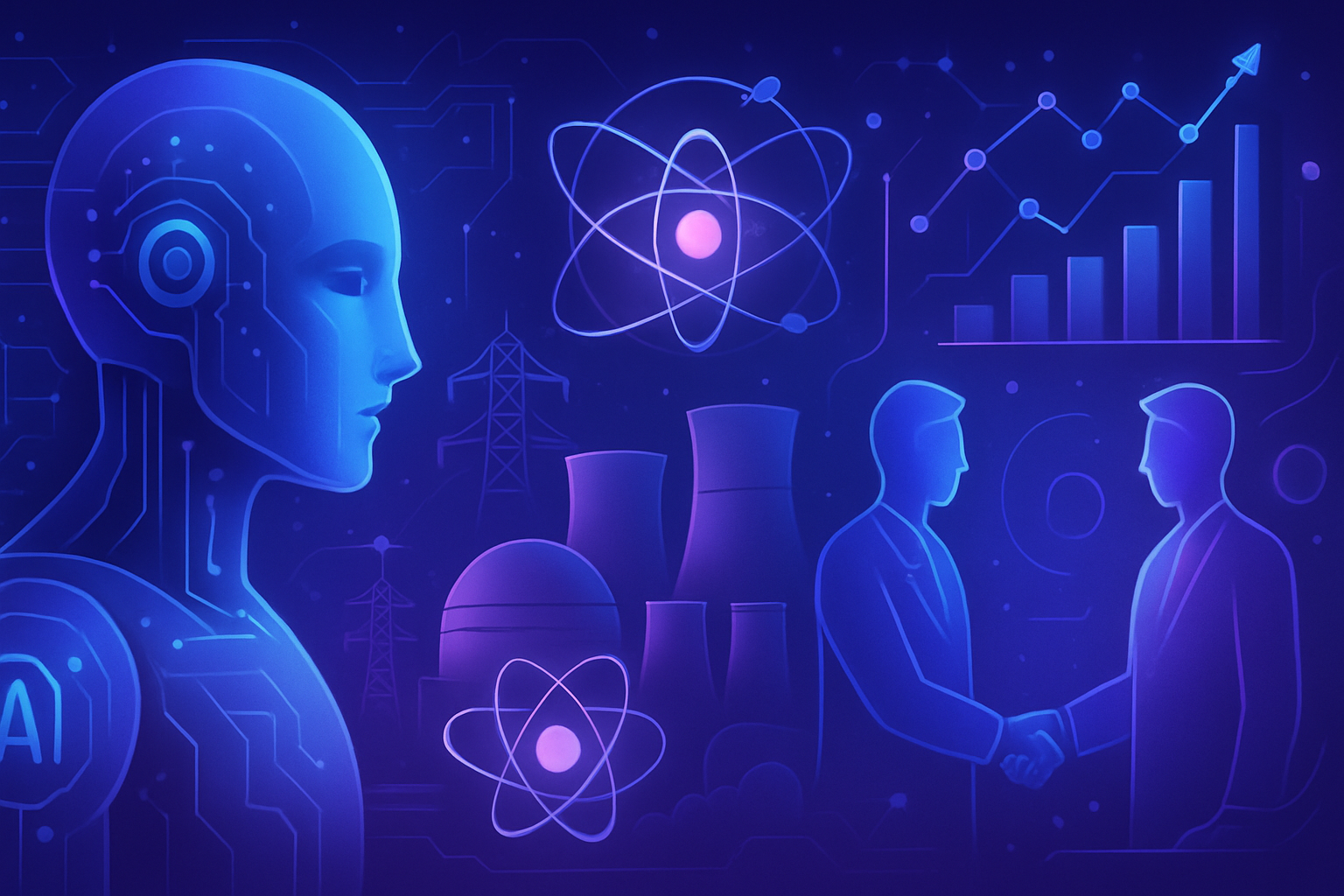The meteoric rise of artificial intelligence is sparking revolutions across many sectors. The strategic agreement between Meta and Constellation Energy illustrates this unique transformation, marked by innovation and sustainability. The synergy between these giants of technology and energy is reinventing economic and ecological paradigms.
Major energy challenges are emerging, integrating AI as a driver of transformation. This bold partnership between digital resources and clean energy reveals promising horizons. The interaction between these two fields propels research and innovation to unprecedented heights.
The Nuclear Agreement between Meta and Constellation Energy
A new agreement between Meta and Constellation Energy marks a significant advancement in the energy supply for data centers. This strategic commitment aims to optimize the use of renewable energies while ensuring a sustainable approach in the face of the growing demands of artificial intelligence.
The Details of the Agreement
Meta has chosen to partner with Constellation Energy to supply part of the energy needed to operate its data centers. This agreement focuses on the use of nuclear energy, specifically from small reactors. By ensuring low-carbon electricity, this initiative reflects Meta’s commitment to align with strict environmental standards.
The Implications for the Technology Industry
This alliance is not limited to simple energy provision. It redefines the approach of technology regarding sustainability. By investing in non-polluting sources, Meta demonstrates a model to follow for other technology companies concerned about their carbon footprint.
The Integration of AI in Energy Production
The combination of artificial intelligence and nuclear energy represents an innovative response to current energy challenges. Meta plans to integrate AI into the management and optimization of energy resources. This choice promises to enhance efficiency while reducing environmental impact. Meanwhile, other giants like Google are also investing in similar energy solutions to ensure the sustainability of their own operations.
Reactions from Industry Stakeholders
Many industry experts welcome the agreement between Meta and Constellation Energy as a decisive step toward integrating clean energy in computing. This supply model could influence future collaborations in the industry, prompting other companies to adopt similar strategies.
Conclusion and Future Perspectives
The collaboration between Meta and Constellation Energy paves the way for new reflections on the future of energy in the technology sector. Initiatives such as the construction of small nuclear reactors illustrate a growing trend towards more sustainable energy production and responsible resource management. Future advances will undoubtedly continue to shape this strategic field, placing energy issues at the heart of sectoral concerns.
Frequently Asked Questions about the Rise of AI and the Nuclear Agreement of Meta with Constellation Energy
What is the agreement between Meta and Constellation Energy?
The agreement concerns the collaboration between Meta and Constellation Energy aimed at using nuclear energy to power Meta’s data centers, thereby reducing its carbon footprint while increasing energy efficiency.
How will this agreement influence the rise of artificial intelligence?
By ensuring a stable and sustainable energy source, this agreement allows Meta to enhance its capacity to develop and deploy more powerful and efficient artificial intelligence solutions while minimizing environmental impact.
What are the ecological advantages of this agreement for Meta?
By partnering with Constellation Energy, Meta will be able to reduce its CO2 emissions and dependency on fossil fuels, thus improving the sustainability of its operations and supporting the transition to cleaner energy sources.
What technologies could be developed through this collaboration?
This agreement could facilitate the development of advanced AI technologies, particularly in processing vast amounts of data, machine learning, and predictive analytics, while optimizing energy consumption.
What is the long-term impact of this agreement on innovation in the technology sector?
In the long run, this agreement could serve as a model for other technology companies seeking to adopt more sustainable practices, thus catalyzing a wave of innovation focused on clean energy and energy efficiency.
How will the agreement contribute to Meta’s perception globally?
By investing in sustainable energy solutions, Meta could enhance its image as a socially and environmentally responsible company, thereby strengthening its position in the global market.
What are the potential challenges associated with this collaboration?
Challenges include nuclear energy regulation, public acceptance, and the investments needed to implement the infrastructure required to integrate nuclear energy into Meta’s operations.
When will this agreement fully come into effect?
The precise details regarding the implementation of the agreement are still being defined, but an announcement regarding the key milestones is expected to be made in the coming months.






